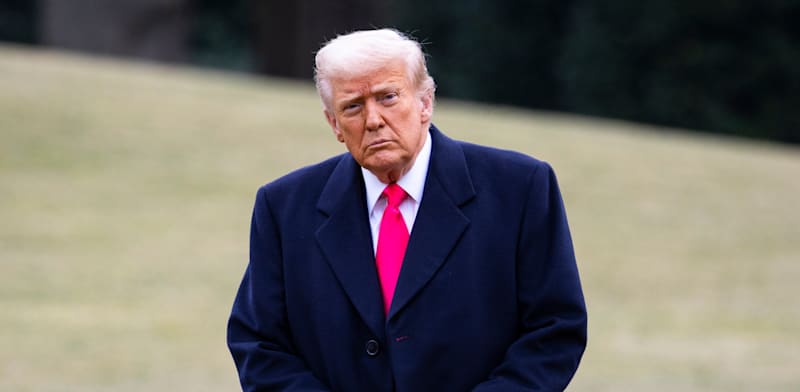With the winds of war blowing in Israel and around the world in recent years Israel’s defense industries have been thriving. The situation has been benefitting not only the giant local companies, but also countless startups and small companies that have emerged in Israel, exploiting their “comparative advantage” in the field, and marketing their products worldwide. But in the coming years, due to the new protectionist policies of the US administration and despite global geopolitical tensions, there is growing concern the growth rate of Israeli defense companies will be significantly harmed, including in sales to the US – one of the major target markets of these companies.
The Israeli government is feverishly engaged on the issue of reciprocal procurement in an attempt to balance the US trade deficit, but in the long term, the Trump administration is expected to have a significant impact on defense trade between the countries on another issue: annual military aid funds.
The current memorandum of understanding (MoU), signed in 2016 by Prime Minister Benjamin Netanyahu and then US President Barack Obama, guarantees Israel annual US procurement foreign military financing (FMF) of $3.3 billion and an additional $500 million for air defense cooperation – the highest amount of aid ever. However, that MoU expires in 2028, and Israel will be required to negotiate the next agreement (which is expected to be in effect until 2038) with the Trump administration.
Grant funds won’t be used in local industry
A major issue that the Obama administration addressed in the 2016 MoU was the conversion clause for offshore procurement (OSP): the ability to convert part of the annual military aid grant into shekels for use by Israel’s defense industry. At the beginning of the agreement, the conversion clause stood at $815.3 million (24.7% of the procurement budget), but it stipulated a consistent reduction intended to redirect investment to the US defense industry.
The most significant step is taking place this year: from a conversion budget of $725.3 million (21.9%), there has been a drop that is anchored in the agreement to $450.3 million (about 13.6%). Next year, there will be a further drop to $250.3 million (about 7.5%), an amount similar to 2027. In 2028, the last year of the MoU, the conversion clause will be 0.
This means that while Israel will benefit from a procurement budget in 2028, Israel’s defense industries will not see a single dollar of the entire amount. The only beneficiaries will be US companies, since Israel will be completely tied to procuring from them in order to spend the potential amount.
RELATED ARTICLES
Israeli companies that are better able to cope with the situation are those that have US subsidiaries, including the big three Elbit Systems, Israel Aerospace Industries and Rafael, and other companies such as missile manufacturer UVision.
These companies have been building a strategy for years designed to attract governments to buy from them, by operating US companies that employ US workers. A fundamental part of the Israeli defense companies’ strategy in opening subsidiaries was the knowledge that the conversion rate would be declining. Now, as countries worldwide are striving to reduce the additional US tariffs to the minimum possible, such subsidiaries provide important versatility.
Yet smaller companies and startups generally do not have foreign subsidiaries, which will weigh heavily on future sales. They will need to explore creative ways that will leave them competitive. According to data from the Stockholm International Peace Research Institute (SIPRI), the US was the second biggest customer of Israeli defense industries buying 13% of all Israeli defense exports between 2020 and 2024.
The warning signs for the next agreement
Now a new MoU is on the horizon, and the Trump administration’s policies do not bode well. Between Donald Trump’s return to the White House in January and early March, Congress approved a framework of agreements totaling nearly $12 billion in arms sales, according to Secretary of State Marco Rubio. However, the anchor is the MoU, which guarantees annual procurement grants that are not dependent on congressional approvals.
The last three MoUs were signed between a year to three years before they came into effect, with the earliest being with the Obama administration. “I am very troubled by the issue of the new MoU,” says Dr. Kobby Barda, a historian of US politics and geo-strategy and lecturer at the Holon Institute of Technology (HIT). “There are several bad signs, with the most problematic being the approval of the $14 billion aid package for Israel – but as part of a package deal with Ukraine and Taiwan. In the vote on Israel, 21 Republican members voted against – and that’s a red flag.”
Another negative signal comes from the press briefing that Trump held in the Oval Office, together with Prime Minister Benjamin Netanyahu. When asked whether he would waive the tariffs, he replied in a sarcastic tone that Israel already receives $4 billion. “When you hear this sarcastic comment from the president, it’s impossible not to ask whether he would be in favor of a new MoU,” explains Dr. Barda. “The ‘Israel’ brand has become one that most Americans have negative opinions on. When you put all this salad into the mix, it shows that the task will be complex.”
“Globes” has learned that so far, certain contacts have been held regarding the next MoU between senior officials in Jerusalem and Washington, but these were exploratory talks rather than significant negotiations. With the Trump administration mainly concerned with tariffs, and Israel concentrating on managing the war and providing immediate assistance where needed, neither country has any current interest in entering into intensive negotiations.
The assumption: All funds in the next MoU will be spent in the US
Ever since the current MoU was signed, in which the OSP conversion clause winds down to zero, the basic assumption at Israel’s Ministry of Defense has been that in the next MoU, the OSP conversion clause would be zero from the start. In other words, the US administration would agree to another MoU, but would require that all money from it be spent with defense companies in the US. Israel had hoped that due to the war, Washington would agree to extend the conversion clause, but with the Trump administration, this hope may be in vain.
In any event, the decision in Congress on the new MoU will likely only be taken after the midterm elections in 18 months. But for a new MoU to be signed in 2026-2027, the bilateral work is required now.
“I do not know of any working groups that are working on the issue,” says Dr. Barda on preparatory activities for the MoU. “This is an event that not only requires the Defense Department, but a deep understanding of the mood in the Republican Party. I estimate that an effective agreement, taking into account the erosion of money, should amount to about $4.2 billion a year. This will be part of the next budget battle in Washington.”
The US expert also sees positive signs because of the AIPAC lobby, which was successful in the last elections with 100% of the candidates it promoted. “The lobby changed its policy and moved from behind the scenes into the open. From the 1970s to 2022, they would give a kind of backing, but since then they have moved to providing non-profit funds to candidates. They put money on 98 Democratic candidates and two Republicans, and won with all of them. AIPAC will do their part on the MoU, even though they have traditionally refused Israeli aid.”
Published by Globes, Israel business news – en.globes.co.il – on April 21, 2025.
© Copyright of Globes Publisher Itonut (1983) Ltd., 2025.







